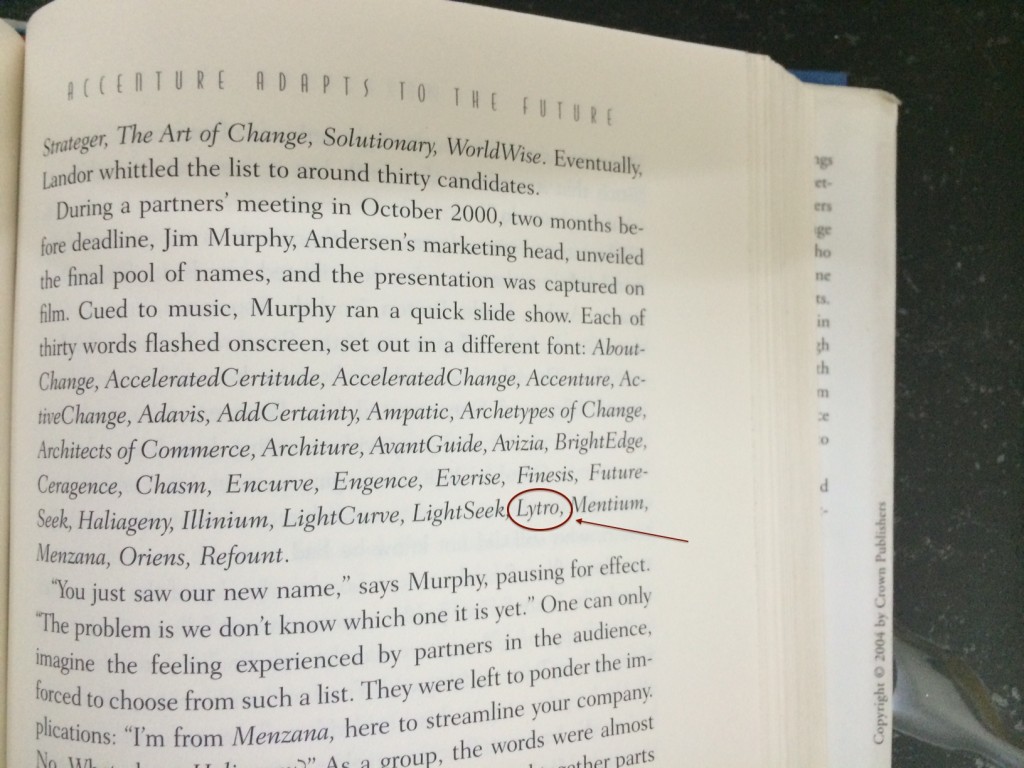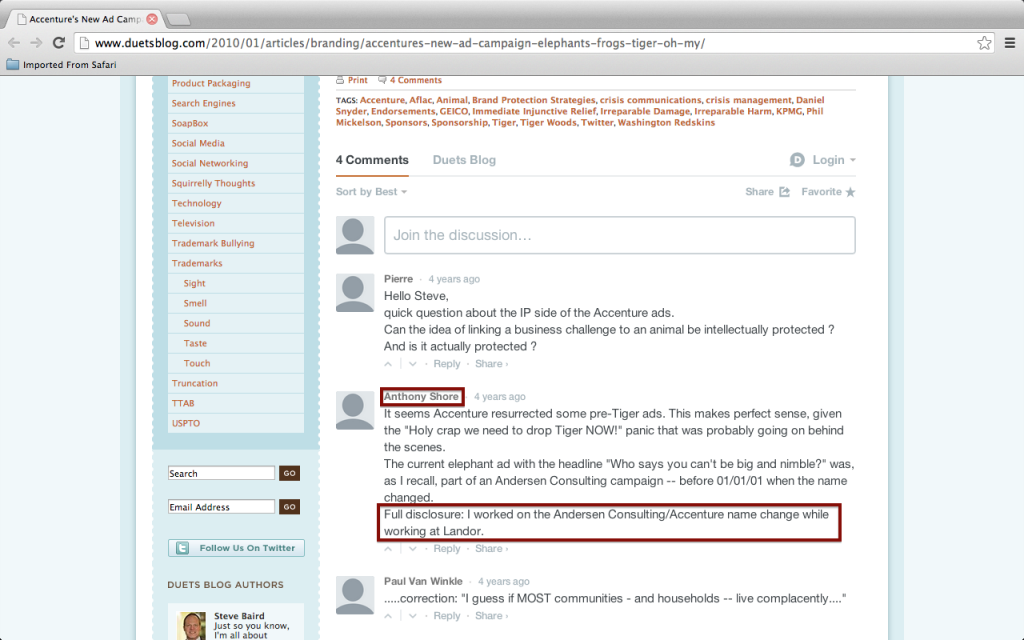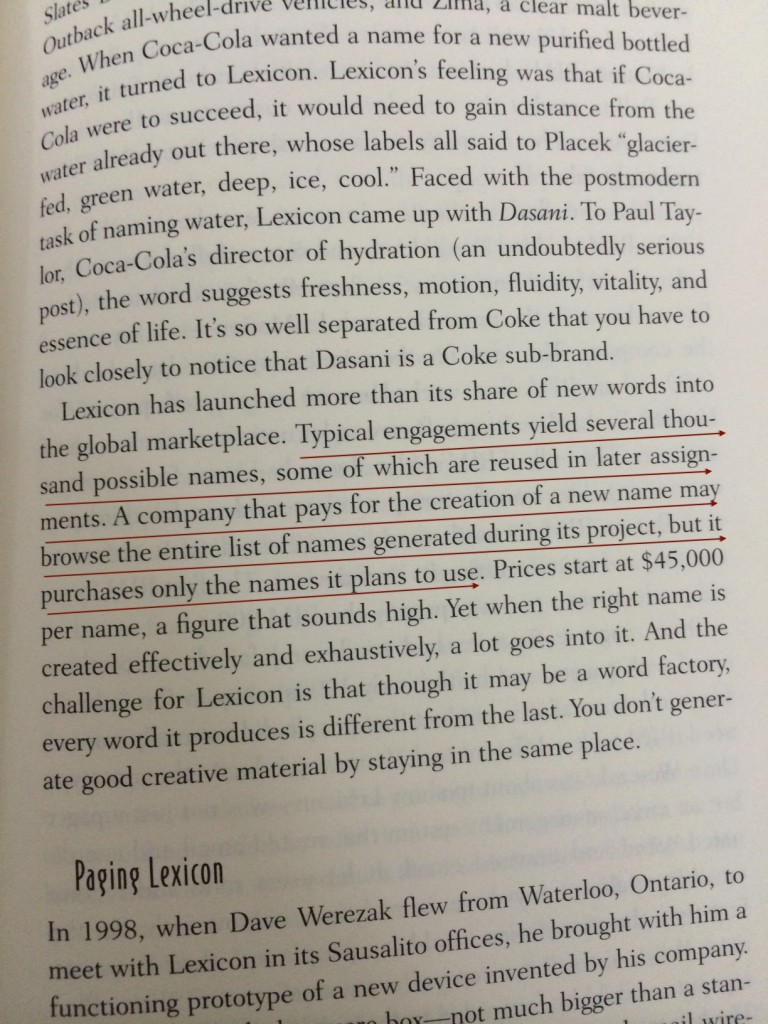Before Lytro was a photography company, it was nearly a consulting firm. Don’t get me wrong, it is not that Ren Ng wanted to set up a McKinsey clone and then decided to set up a photography co instead. Rather Lytro was amongst the shortlist of 30 names suggested when Andersen Consulting was changing its name. Of course, Lytro was rejected in favour of Accenture. Just as well.
I came across Lytro being included in the shortlist of names for Anderson’s makeover in a fascinating book called Word Craft by Alex Frankel. The book deals with the business of naming and profiles firms such as Idiom, Lexicon, Landor and others who get paid for coining new brand names and monikers.
One of the chapters in the books deals with the complete Accenture rebranding saga. My subsequent research into the naming business, sparked off by the book threw up another fascinating connection. The person credited with Lytro’s (camera co) naming, Anthony Shore was also the erstwhile head of the Verbal Branding Practice at Landor, under whose supervision the Anderson rebranding assignment occurred.
Let us look at the facts.
Alex Frankel says in Wordcraft that Lytro was mentioned as one of the final 30 names shortlisted (along with ‘Accenture’), and presented by Landor to the Andersen partners in October 2000 (page 107).

The final shortlist was culled from a list of 3,000 names generated by Landor, and a further 2,600 submitted by Andersen employees who were encouraged to submit names as part of the rebranding process. From this masterlist of 5,600 names, the final shortlist of 30 was derived. In page 108 of the book, it is further said the winning entry Accenture was the only one not submitted by Landor, thus confirming that the name Lytro was conceived at Landor.
The book also mentions Anthony Shore, a Creative Director at Landor, and head of the Verbal Branding Practice (pgs 104-5). As head of this practice, the Andersen renaming initiative came under him. This is confirmed from various articles including this one in CRM Magazine as well as this comment on a blog by Anthony Shore (enclosed screenshot below).

Lytro was named in 2011, a full decade on by Operative Words, a company headed by Anthony Shore, who quit Landor in 2008. It is not clear if Operative Words has employees other than Mr Shore. This is substantiated by Anthony Shore’s blog post on Lytro naming as well as a blog post by Heather O’Donnell of Sequence Branding who hired Operative Words to come up with names. Sequence had been hired by Lytro (then named Refocus Imaging) to come up with their brand identity.
Given that the two naming events happened 11 years apart, it is highly likely that this is happenstance. The name Lytro could have been created from scratch on both occasions. Even if it isn’t, implying that Mr Shore had a list of names kept from his days at Landor and took that with him to his new company, I do not see this as illegal.
As a well-established practice, naming firms do reuse names rejected by one brand for another. This is mentioned in Page 51 of Wordcraft. However neither the naming firm or the client has any rights on the names rejected. The client only pays for the selected words and with thousands of potential names being created on a project, it is unlikely that a naming firm will be able to trademark or register each of these names.

Thus given that neither Accenture nor Landor owns ‘Lytro’, and assuming that this was an intentional act (I do believe this would be next to impossible to prove), it would be at best an immoral not an illegal act.
